Mineral Oil for Hair: How to Use It & Advantages
It’s lightweight and can tame frizz - learn the surprising mineral oil can benefit your hair.
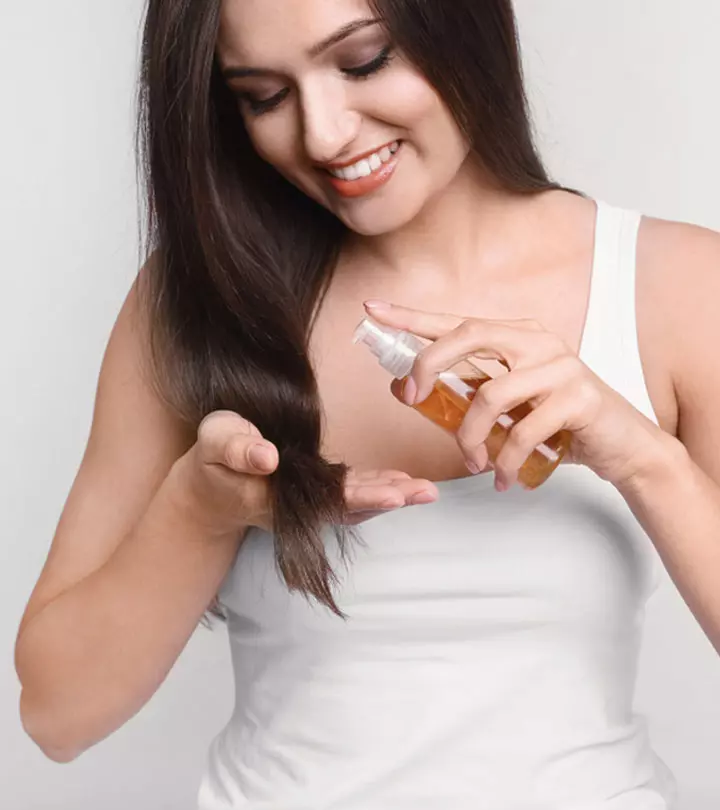
Image: Shutterstock
If you pay attention to labels on products, you may have come across mineral oil for hair. But with a war raging against skin and hair care products that contain petrochemicalsi A vast set of chemicals produced from petroleum and natural gas and used for a range of chemical processes. , mineral hair oil has stirred up fear and confusion in buyers.
To clear your doubts, you must approach the issue the right way. Knowing why mineral oil for hair is touted as harmful is the first step. That will determine if you should steer clear of products containing mineral oil. Read on to learn the truth about mineral oil for hair before you jump to conclusions. Here’s everything you need to learn about mineral hair oils. Scroll down!
 Know Your Ingredient: Mineral Oil
Know Your Ingredient: Mineral OilWhat Is It?
A colorless, odorless liquid made from petroleum, also known as base oil.
What Are Its Benefits?
It can moisturize your hair and scalp, reduce tangles, and prevent hair breakage.
Who Can Use It?
Anyone with dry, damaged locks can use mineral oil to boost their hair health.
How Often?
It can be applied once or twice per week and shouldn’t be used frequently or for a long time.
Caution
It can cause allergic reactions like irritation on the scalp and eyes in some individuals and should never be consumed without proper medical consultation.
In This Article
What Is Mineral Oil?
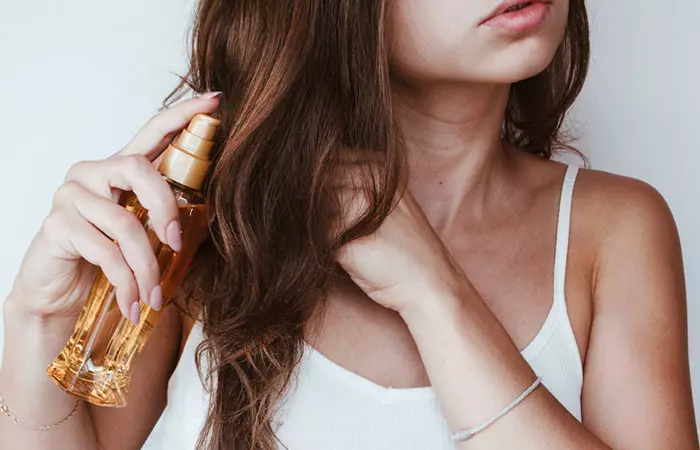
Mineral oil is a transparent, odorless oil obtained through fractional distillationi The method of selectively boiling and condensing to separate the components or compounds from a liquid combination. of crude oil. It also goes by the name of ‘liquid petroleum’ or ‘paraffin oil’ and belongs to a class of chemicals called hydrocarbons. The oil is used in many cosmetic and personal care products, including foundations, lipstick, sunscreens, and hair products.
The rising popularity of mineral oil as a cosmetic ingredient can be attributed to its lubricating properties. It creates a barrier on the skin and hair to lock in moisture. This way, the oil gives a luminous glow and smooth, luxurious feel to the hair and skin. What’s more, mineral oil is inexpensive, non-allergenic, and less susceptible to oxidationi Reactions that occur when an element combines with oxygen or other such oxidizing substances. and getting spoiled.

Why does mineral oil get so much flak? And if it is so bad, why is it still used in so many hair care products, such as shampoos, conditioners, and cleansers? Let us find out.
Key Takeaways
- Mineral oils can protect you from hair damage, keep your hair moisturized, and fight frizz.
- They can cause scalp irritation, allergic reactions, eye irritation, and acne.
- Try using mineral oil sparingly on the hair to prevent greasy buildup on the scalp.
Is Mineral Oil Really Bad For You?
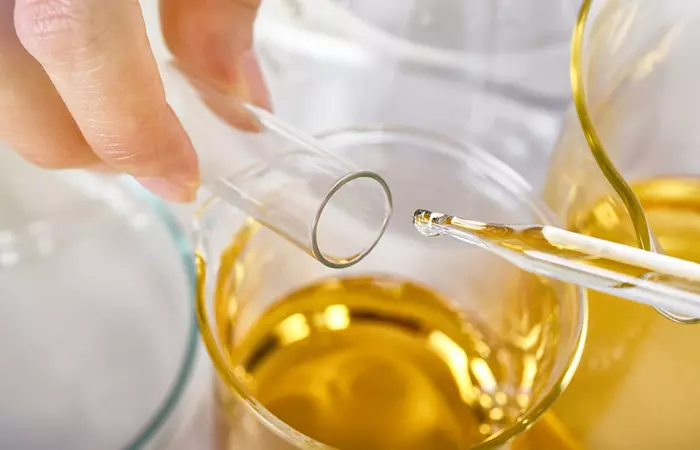
The biggest concern with mineral oil is that it is a cheap by-product extracted from petroleum and other petroleum-based products. This is the stuff you commonly use to lubricate your car engine or other machinery. Hence, a lot of people are understandably concerned that it is laced with high concentrations of hazardous pollutants.
There is a longstanding notion that mineral oil also has potential cancer-causing properties. However, you can put all these doubts to rest!
The mineral oil used in beauty and personal care products undergoes rigorous purification, and you can be assured that it is safe and non-toxic. Don’t believe us? ChemicalSafetyFacts.org, a website developed and maintained by the American Chemistry Council, supports our claim (1).
According to the website, the FDA and international regulatory agencies like the Cosmetics Directive of the European Union permit the use of mineral oil in personal care products and cosmetics with no listed restrictions.
As for claims that mineral oil in cosmetics can potentially cause cancer, there is no conclusive evidence yet. Of course, when mineral oil is untreated or mildly treated, it can contain cancer-causing materials. But cosmetic-grade mineral oil needs to comply with high quality and safety standards and is, therefore, not considered toxic.
Moreover, mineral oil does not penetrate human skin or affect internal organ systems (2). But the question remains: is mineral oil good for your hair?
Can Mineral Oil Be Used On Hair?
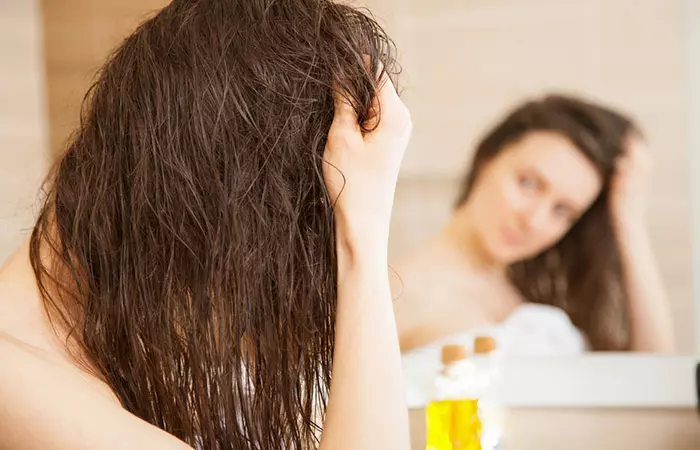
The opinions on whether or not mineral oil is bad for hair are conflicting. It is an excellent lubricant and detangler for thick curly hair. Hence, if the oil works for you, why not?
Health hazards from using mineral oil on hair are also rare, so you have no cause for concern. Some people, however, worry that it can cause greasy buildup on the scalp. If that bothers you, try to use it sparingly and only if or when you need it.
In short, the choice comes down to your subjective experience – if you have thin hair and the residue from mineral oil is turning out to be an absolute nightmare, you should avoid it. But if you grew up using mineral oil to tame your tresses or your favorite hair product happens to contain mineral oil, there is no reason to stop using it.
As a commonly used oil in hair grooming, mineral oil has quite a few benefits. Let us look at some of the benefits of mineral oil for hair in the following section.
Advantages Of Using Mineral Oil For Your Hair
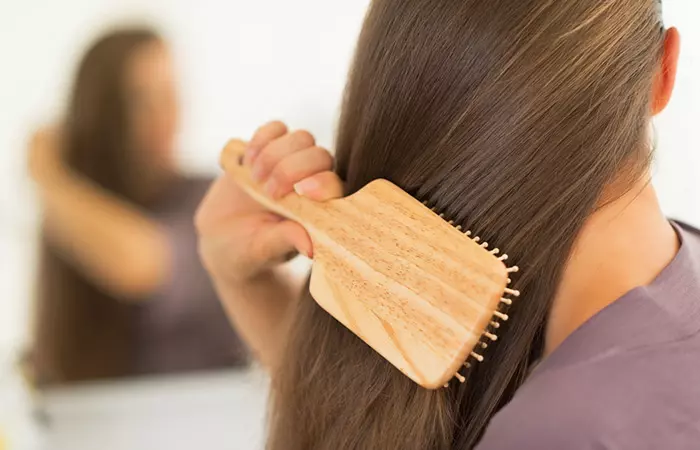
- Traps Moisture
If you have dry, frizzy hair, mineral oil is one of your best bets to lock in hydration. Mineral oil forms a barrier over hair cuticles to trap moisture and protect the hair from environmental aggressors, which in turn aids hair growth.
- Non-Greasy
Mineral oil is non-greasy, which is one reason it is extensively used in hair oil formulations
(3). When used in small amounts, mineral oil can give your hair a smooth, glossy glow without leaving a slick coating or weighing your hair down. It is also a natural potion for healthy, defined curls.
- Shields The Hair From Water Damage
Water penetrates the hair shafts and causes swelling, making your locks vulnerable to damage. Mineral oil naturally repels water, thereby protecting your hair from damage due to repeated swelling and drying (4).
Mary, a hair blogger, shared her experience of using mineral oil products for her hair in her blog post. She said,, “What I can say is that my hair thrives using this product and that I haven’t experienced any problems as a result of using products that contain mineral oil (i).”
According to a study published in the Journal of Clinical & Experimental Dermatology Research in March 2025, the effect of oils on hair breakage is better than other hair care products. Among various oils, coconut oil is more beneficial with less than 10% increase in breakage after 20 cycles of SLES wash.

Anti-Breakage Efficacy Of Mineral Oil
Source: Anti-Breakage efficacy evaluation of hair care products using the hair breakage regression model Quick Tip
Quick Tip- Lightweight And Easily Absorbed
Another reason mineral oil is good for hair nourishment: it is lightweight and fast-absorbing.
It will leave your hair feeling less weighed down than heavy oils like coconut, castor, and olive oils.
If you have low-porosity hair, using a lightweight oil like mineral oil allows for easy moisture absorption and acts as an effective dry hair treatment. On the other hand, heavy oils tend to sit on the hair surface, preventing moisture absorption.
- Combats Frizzy Hair
Dry hair and stubborn knots are something we all frequently struggle with. Well, mineral oil can be the answer to your detangling woes! Mineral oil creates slip, making it easy to comb out tangles without damaging hair. It can also minimize frizz by acting as a barrier to moisture.
As we pointed out earlier, frizziness occurs when too much moisture penetrates the hair strand, causing it to swell. Mineral oil can stave off moisture by creating a protective barrier around the hair.
- May Help Treat Dandruff
Mineral oil may help relieve dandruff. It moisturizes and softens the dry and flaky scalp, providing relief from the itchiness and discomfort. Apply mineral oil to the scalp and leave it on for at least an hour for best results.
- Remedy For Head Lice
Recent scientific research indicates that mineral oil can also serve as a potential cure for lice. A study demonstrates that mineral oil disrupts the normal water and gas exchange of adult lice and their eggs, thereby eliminating them (5). Hence, if you need a cheap, safe, and non-toxic treatment for head lice, mineral oil can be your best bet.
 Quick Tip
Quick TipWe have highlighted all the benefits of mineral oil, but it is equally important to understand the side effects of mineral oil on your hair and scalp.
Side Effects Of Mineral Oil To Keep An Eye Out For
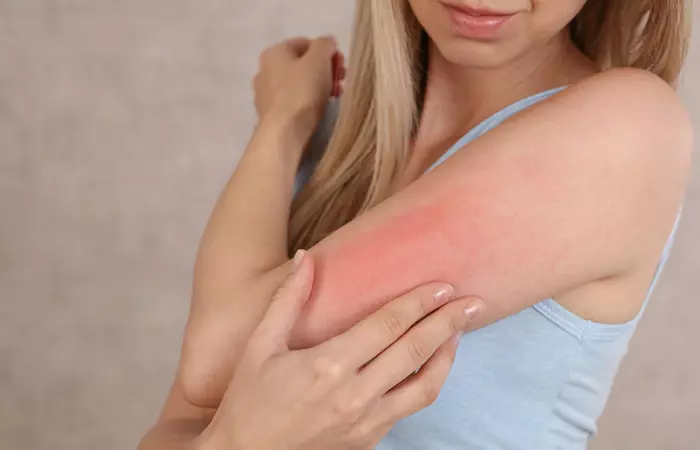
As mineral oil is a chemically stable, inert ingredient that does not spoil easily, it rarely causes any severe allergic reactions. Nevertheless, some people may experience the following physical side effects:
- Allergic Reactions
Although rare, mineral oil can sometimes irritate the skin and induce allergic reactions, such as red spots, itching, swelling, or rashes.
- Risk Of Scalp Irritation
Scalp irritation is another possible side effect of mineral oil. Long-term use of mineral oil can be bad for your hair as it can lead to scalp buildup and cause itching or eczema flares. Scalp buildup can also clog pores and is linked to rapid hair loss.
- Redness Or Eye Irritation
Mineral oil may cause temporary irritation and redness if it comes in contact with your eyes. If eye irritation occurs, try splashing your eyes with cold water to soothe the irritation.
- Risk Of Toxicity
If mineral oil is accidentally swallowed or ingested, it may accumulate in human organs. In fact, mineral oil hydrocarbons are among the greatest contaminants of the human body, amounting to nearly 1 gram per person. Moreover, cosmetics are found to be a relevant source of this contamination (6).
- Acne
Mineral oil is not commonly cited as an acne-causing ingredient. However, sometimes when you rinse your hair, the oil can run down your face, back, or chest. This way, mineral oil may leave a residue behind that can irritate the skin and cause breakouts.
Due to these side effects, many people look out for alternatives for mineral oil. Check out the next section to learn about popular alternatives for this oil.
Mineral Oil Alternatives For Hair
- Coconut Oil: It is great for strengthening the hair. Using coconut oil for hair growth may improve the appearance of your tresses with regular usage. Its antibacterial and antifungal properties may also promote scalp and hair health (7).
- Olive Oil: This oil is not only a natural emollient but may also protect the hair from UV radiation. Moreover, its antifungal properties promote scalp health (7).
- Argan Oil: This oil may protect the hair against oxidative damage (8). It may also moisturize the hair, regulate sebum production due to its oleic acid content, and increase hair elasticity (7).
- Jojoba Oil: It is a natural moisturizer and may promote healthy hair growth (9).
Infographic: What To Know About Using Mineral Oil
With so many hair, skin, and makeup products including this ingredient in their formulations, it is easy to focus on mineral oil’s benefits alone. But to properly decide if this oil is for you, you need to keep both, its advantages and disadvantages, in mind. Check out the infographic below for a quick recap on the boons and banes of using mineral oil.
Some thing wrong with infographic shortcode. please verify shortcode syntaxTo recap, mineral oil is increasing in popularity as a cosmetic ingredient because it locks in moisture and lubricates the skin. Mineral oil is non-allergenic, less susceptible to spoilage and oxidation, and inexpensive.
You can use mineral oil for hair care, especially if you have curly hair. It helps detangle and lubricate thick, curly hair and improves hair shine. It traps moisture in the hair strands, has a non-greasy texture, protects the hair from water damage, curbs frizz, and improves hair strength. However, it can be unsuitable for thin hair as it leads to build-up. It is recommended to use mineral oil in moderation and with some caution.
Frequently Asked Questions
Is mineral oil suitable for all hair types?
Mineral oil is versatile and can be used on most hair types. However, it’s important to note that it may weigh down fine hair and isn’t ideal for oily scalps as it may clog hair follicles.
How should mineral oil be applied to hair for maximum benefits?
When applying mineral oil, it’s important to do so with care. To maximize benefits, apply it to damp hair, focusing on the ends. If your scalp is prone to oiliness, avoid it, use sparingly to prevent buildup, and rinse thoroughly during your next wash. Another way to apply mineral oil to your tresses is by using it as a pre-shampoo treatment. Simply warm a small amount of mineral oil, massage it into your hair and scalp, leave it on for 20-30 minutes, then wash it with a gentle shampoo.
Can I leave mineral oil in my hair overnight?
No, while you can leave mineral oil overnight, it is recommended that you leave it on for one to two hours to reap its benefits.
Does mineral oil make your hair fall out?
Mineral oil may cause buildup in your scalp which may increase the risk of hair fall.
Is mineral oil a heat protectant?
No, mineral oil is not a heat protectant as it can quickly take up heat from a hot styling tool. This may result in further hair damage.
Is jojoba oil a mineral oil?
No, jojoba oil is not a mineral oil. Jojoba oil is derived from the nut of the jojoba oil. Mineral oil is obtained from crude oil.
Is Vaseline a mineral oil?
Vaseline is petroleum jelly which is made from a combination of mineral oils and waxes.
Illustration: Mineral Oil for Hair: How to Use It & Advantages

Image: Stable Diffusion/StyleCraze Design Team
Curious to know more about mineral oil? Watch this video to uncover the facts about this commonly used skincare ingredient.
Personal Experience: Source
StyleCraze's articles are interwoven with authentic personal narratives that provide depth and resonance to our content. Below are the sources of the personal accounts referenced in this article.
i. Natural Hair Myths: Is Mineral Oil Bad For Your Hair?https://chocolatecurliegirlie.wordpress.com/2015/11/10/natural-hair-myths-is-mineral-oil-bad-for-your-hair/
References
Articles on StyleCraze are backed by verified information from peer-reviewed and academic research papers, reputed organizations, research institutions, and medical associations to ensure accuracy and relevance. Read our editorial policy to learn more.
- Mineral Oil.
https://www.chemicalsafetyfacts.org/chemicals/mineral-oil/ - Mineral oils and waxes in cosmetics: an overview mainly based on the current European regulations and the safety profile of these compounds.
pubmed.ncbi.nlm.nih.gov/31588613/ - Effect of mineral oil, sunflower oil, and coconut oil on prevention of hair damage.
pubmed.ncbi.nlm.nih.gov/12715094/ - Hair Cosmetics: An Overview.
www.ncbi.nlm.nih.gov/pmc/articles/PMC4387693/ - Efficacy and safety of a mineral oil-based head lice shampoo: a randomized, controlled, investigator-blinded, comparative study.
pubmed.ncbi.nlm.nih.gov/27286033/ - Evidence for cosmetics as a source of mineral oil contamination in women.
pubmed.ncbi.nlm.nih.gov/21970597/ - Hair Oils: Indigenous Knowledge Revisited
https://www.ncbi.nlm.nih.gov/pmc/articles/PMC9231528/ - Argan oil as a pretreatment of human hair before exposure to oxidative damage: Attenuated total reflectance and protein loss studies
https://pubmed.ncbi.nlm.nih.gov/35226791/ - Jojoba Oil: An Updated Comprehensive Review on Chemistry Pharmaceutical Uses and Toxicity
https://www.ncbi.nlm.nih.gov/pmc/articles/PMC8197201/
Read full bio of Dr. Shruti Chavan
Read full bio of Ramona Sinha
Read full bio of Eshna Das
Read full bio of Swathi E





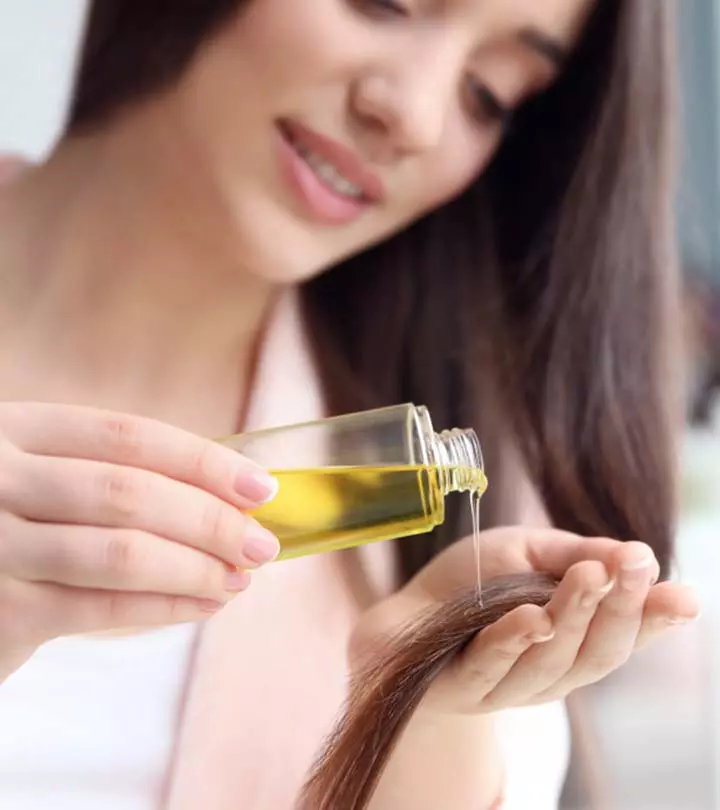
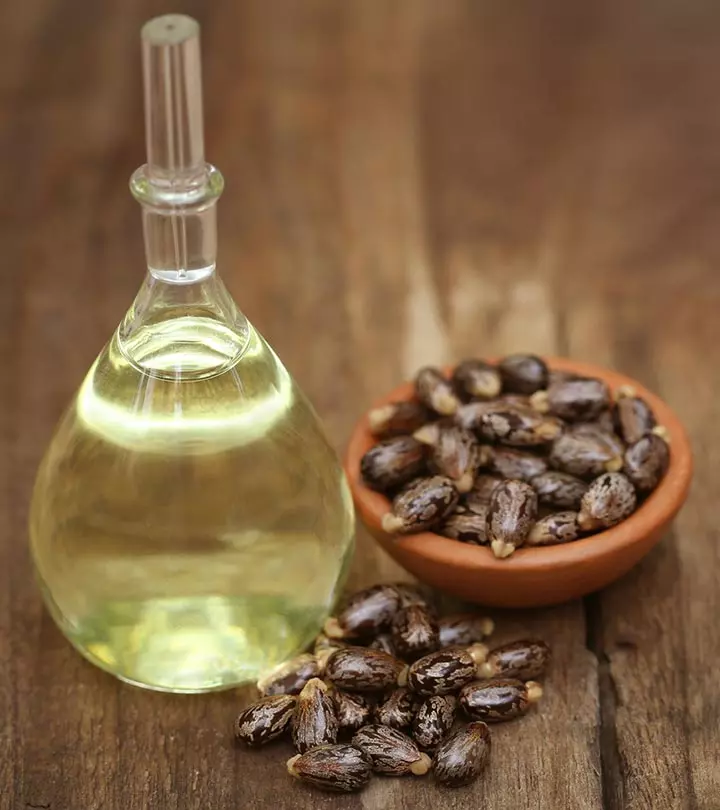


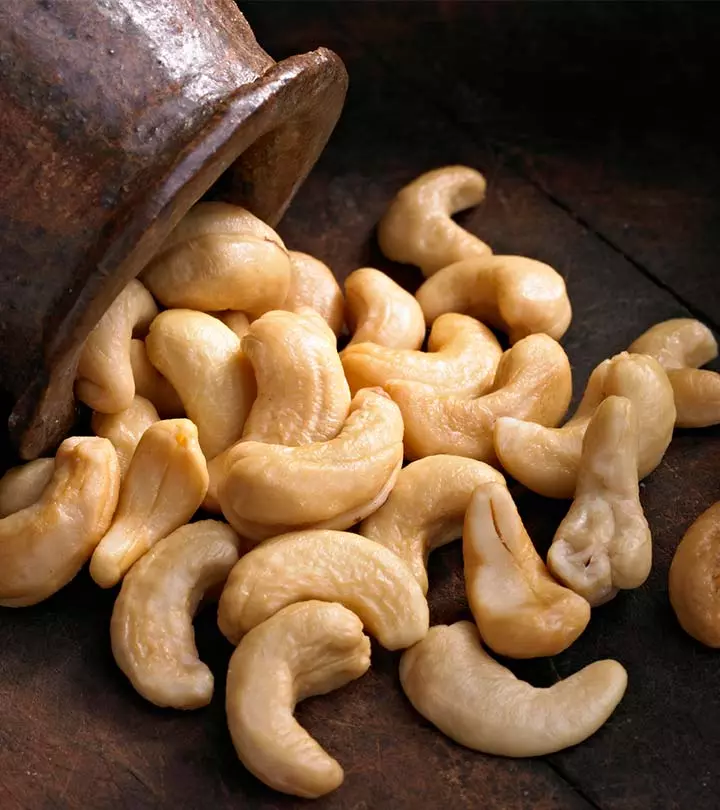
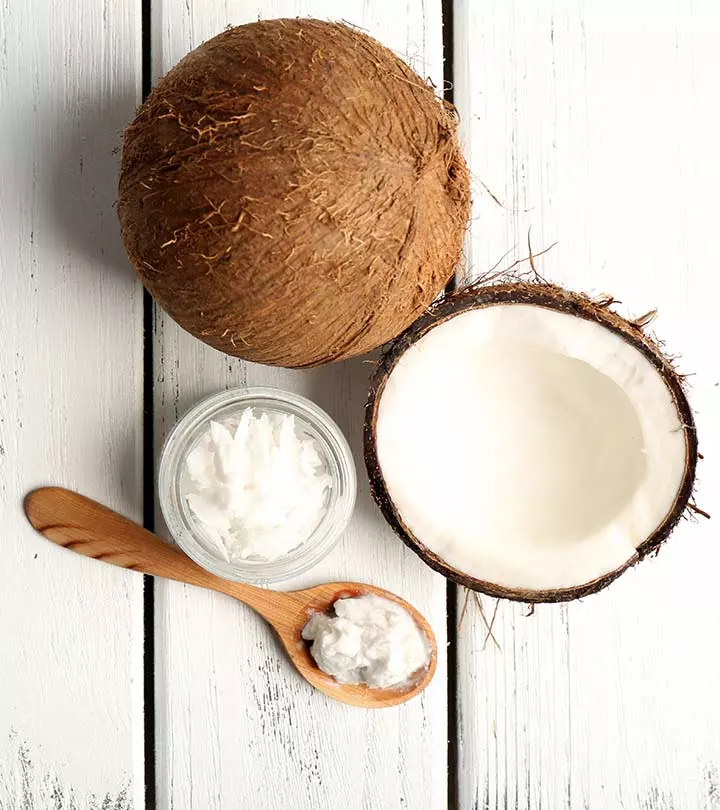
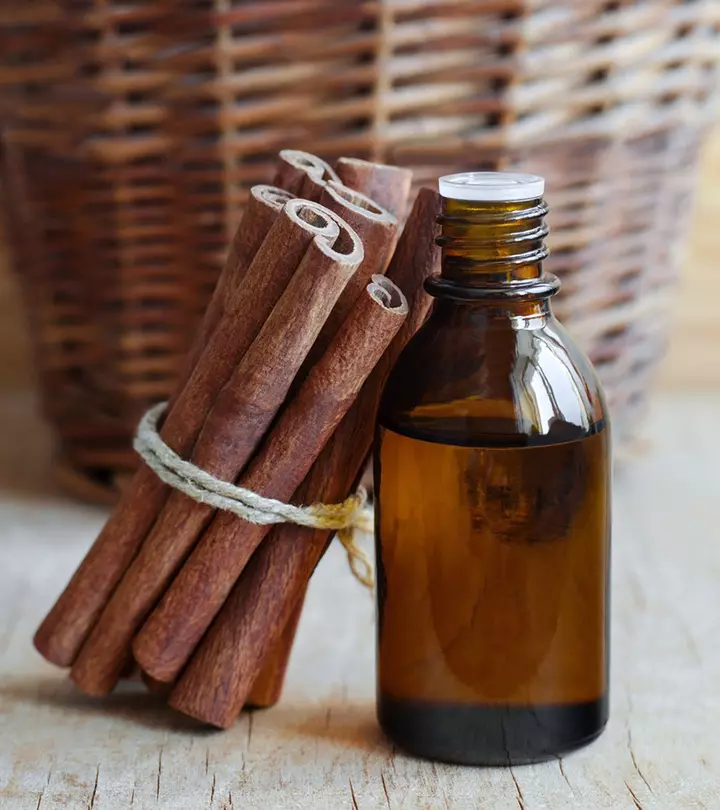
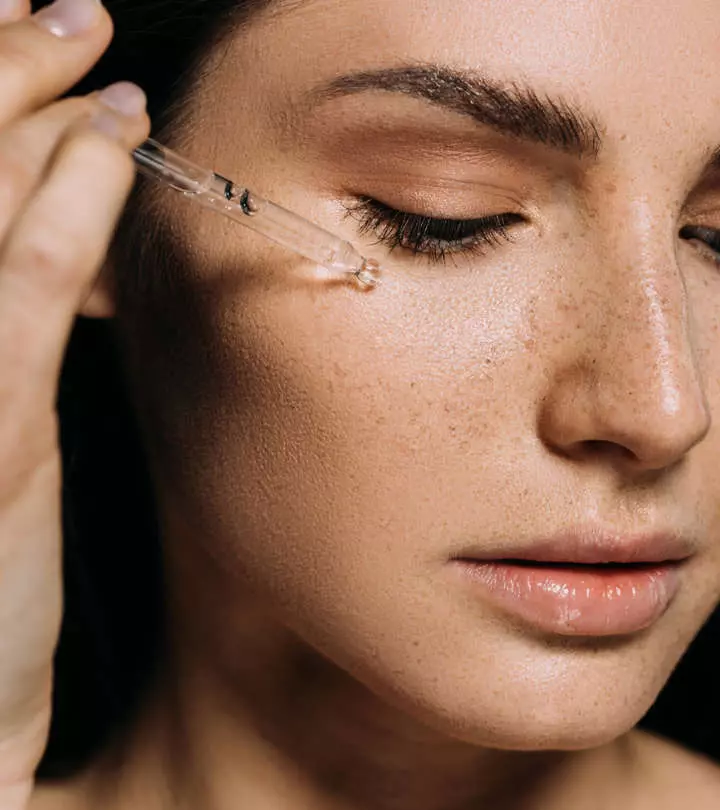

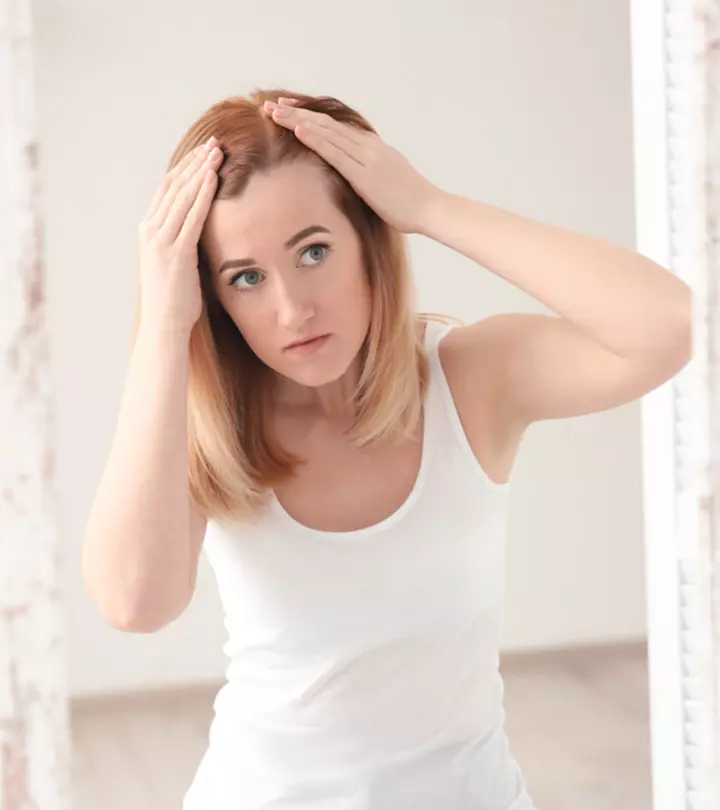
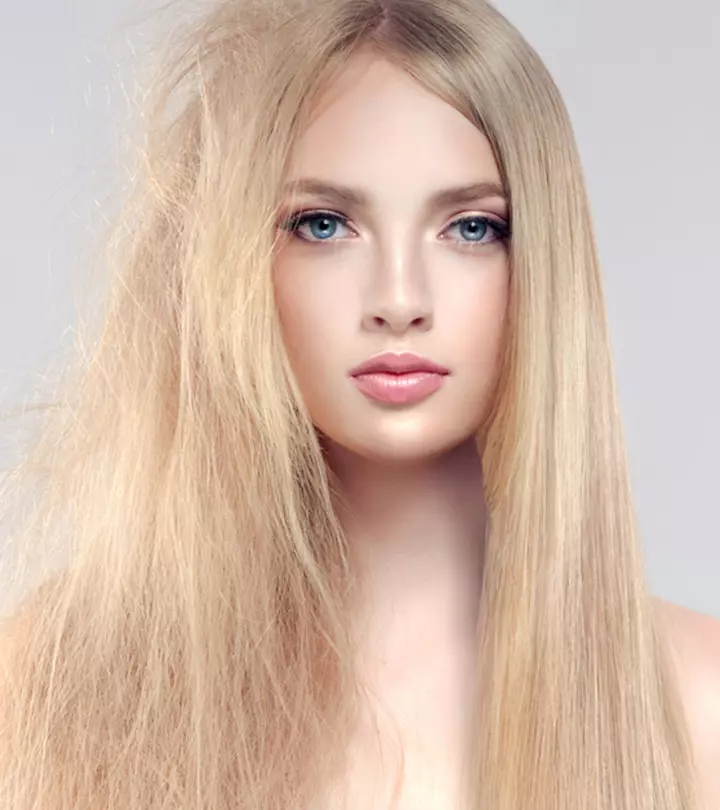
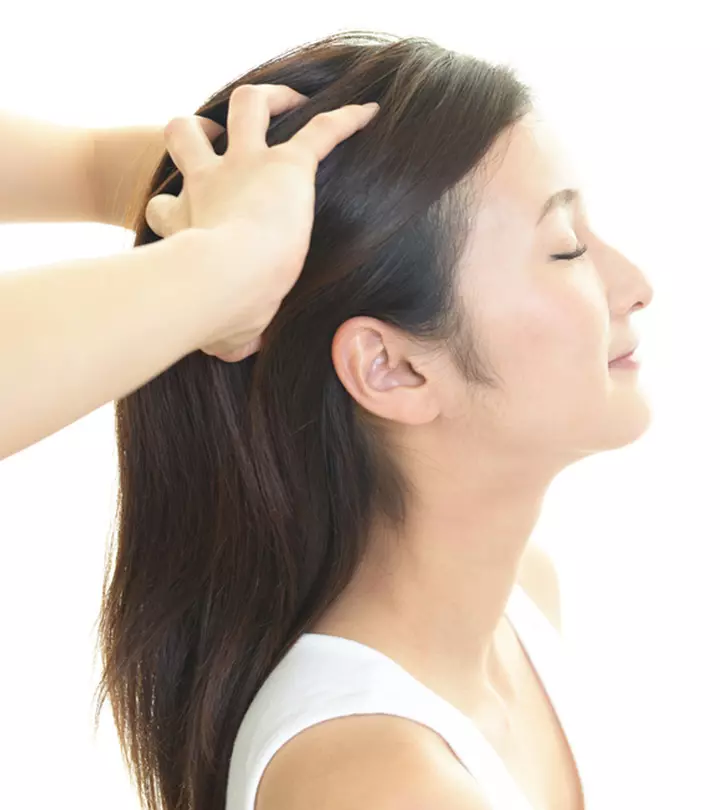
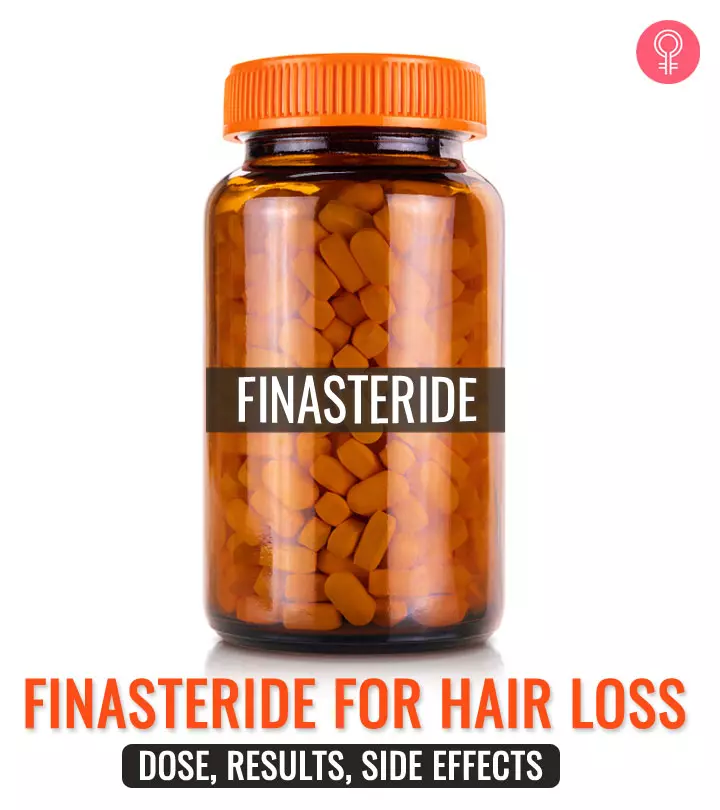
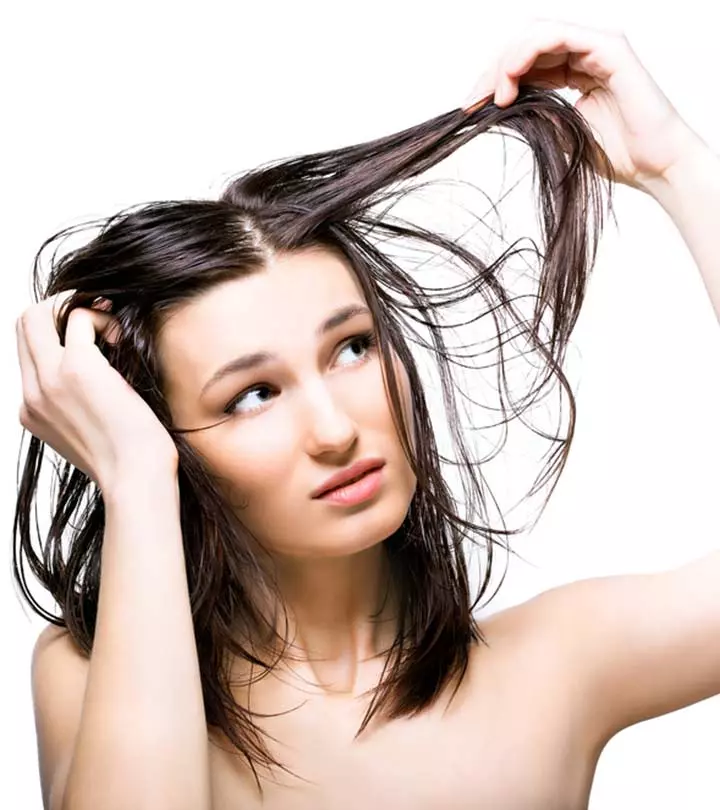

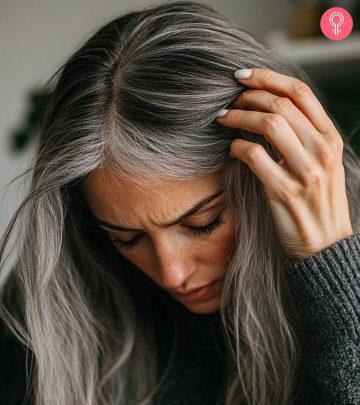
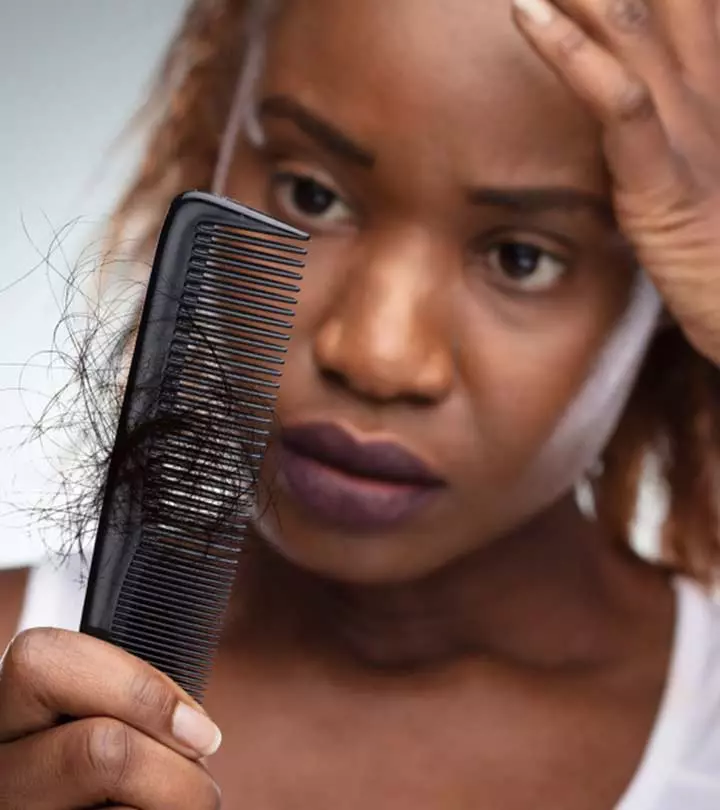

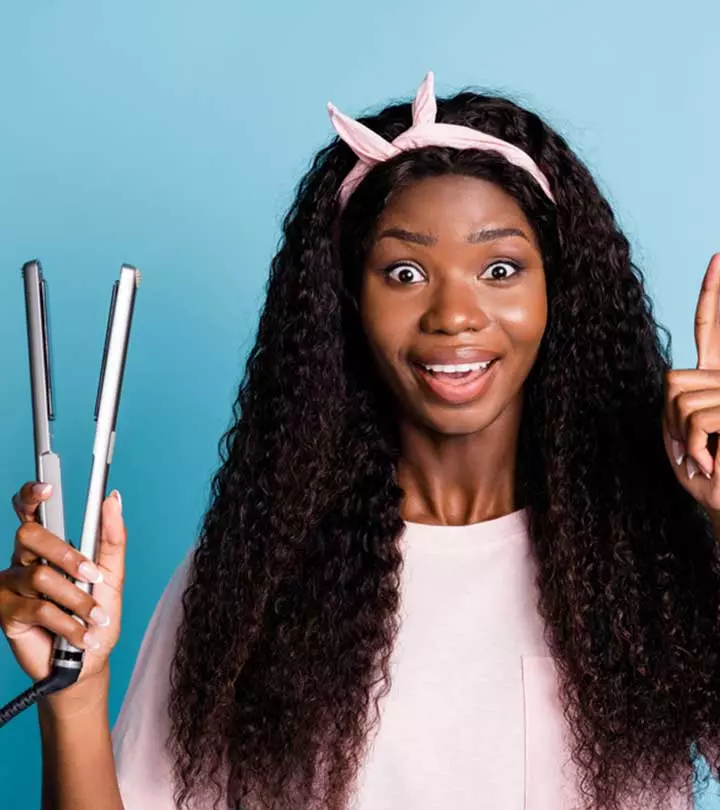
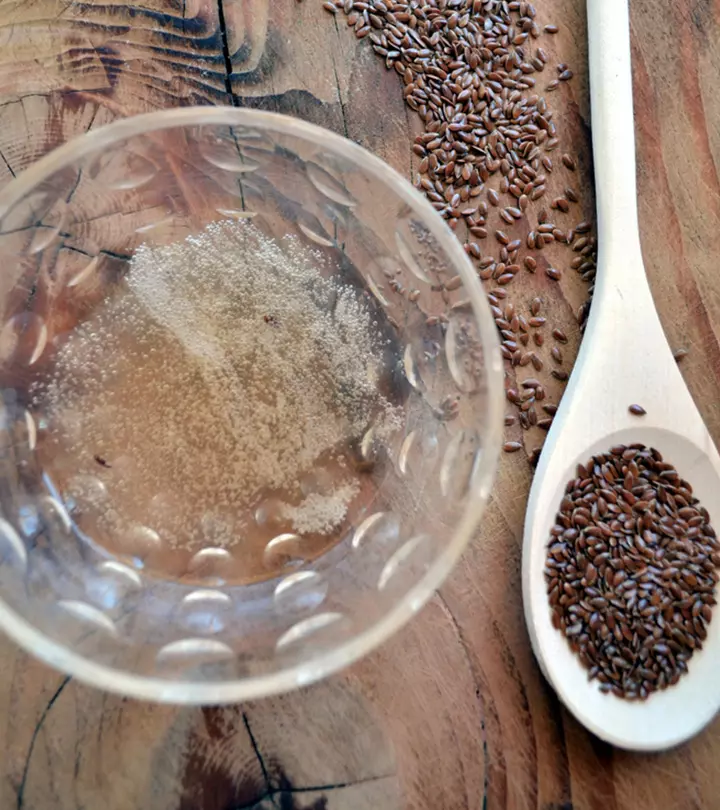

Community Experiences
Join the conversation and become a part of our empowering community! Share your stories, experiences, and insights to connect with other beauty, lifestyle, and health enthusiasts.